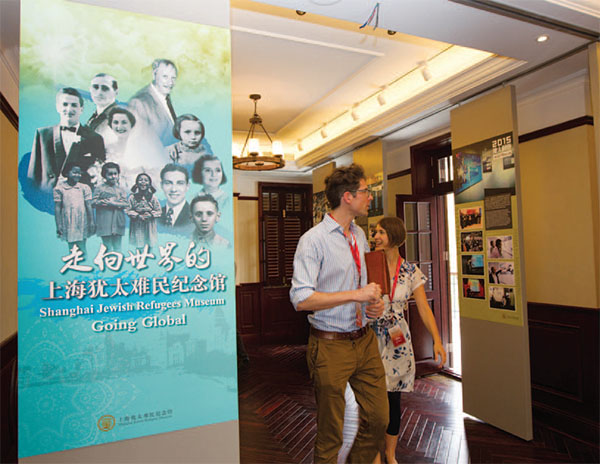

 |
|
Visitors checking out the new White Horse Inn. PHOTO BY GAO ERQIANG / CHINA DAILY |
The Klinger and the Mosberg families had fled from Vienna in 1938 when German forces took over Austria. Like many refugees, they had to start their lives all over again and make a living in an economy that had been paralyzed by war.
The Klingers ran a restaurant while the Mosbergs set up a Viennese coffee house called Zum Weissen Ross'l (meaning The White Horse Inn) in Hongkou district where most of the refugees lived. Carol Dorr, Ron Klinger's younger sister, said that they had named the coffee house after a famous Austrian operetta as the Mosbergs were from Austria.
"I think they considered it a place where people could feel at home while dining on European food. There were also a lot of musicians in the Jewish community who played here too," said Dorr.
Despite the war, the refugees nevertheless managed to create a small economic boom in Hongkou. They transformed the war-torn area into a European-styled neighborhood which gained the reputation of being "Little Vienna", according to David Kranzler's book Japanese, Nazis & Jews: the Jewish Refugee Community of Shanghai.
And at the center of this bustling district was The White Horse Inn, a café and restaurant by day, a bar and nightclub by night. It was popular with everyone, not just the Jews. Klinger recalled that there was even a singer who belted out songs in German.
The coffee house also became the place where Hermann Klinger and Herta Mosberg, who worked as a waitress there, met. Though it wasn't quite a love-at-first-sight affair, they eventually fell in love and got married in February 1941. Nine months later, Ron Klinger was born.